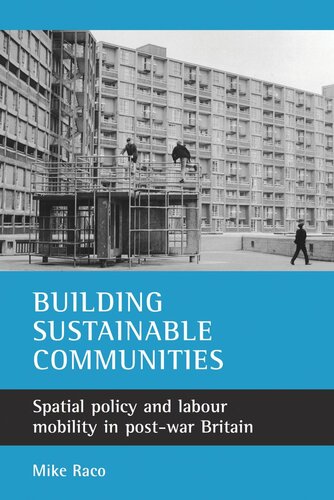

Most ebook files are in PDF format, so you can easily read them using various software such as Foxit Reader or directly on the Google Chrome browser.
Some ebook files are released by publishers in other formats such as .awz, .mobi, .epub, .fb2, etc. You may need to install specific software to read these formats on mobile/PC, such as Calibre.
Please read the tutorial at this link: https://ebookbell.com/faq
We offer FREE conversion to the popular formats you request; however, this may take some time. Therefore, right after payment, please email us, and we will try to provide the service as quickly as possible.
For some exceptional file formats or broken links (if any), please refrain from opening any disputes. Instead, email us first, and we will try to assist within a maximum of 6 hours.
EbookBell Team

4.0
96 reviewsIn 2003 the Labour Government published its ambitious Sustainable Communities Plan. It promised to bring about a 'step change' in the English planning system and a new emphasis on the construction of more balanced, cohesive, and competitive places. This book uses historical and contemporary materials to document the ways in which policy-makers, in different eras, have sought to use state powers and regulations to create better, more balanced, and sustainable communities and citizens. It charts the changes that have take place in community-building policy frameworks, place imaginations, and core spatial policy initiatives in the UK since 1945. In so doing, it examines the tensions that have emerged within spatial policy over the types of places that should be created and the forms of mobility and fixity required to create them. It also shows that there are significant lessons that can be learnt from the experiences of the past. These can be used to inform contemporary policy debates over issues such as migration, uneven development, key worker housing, and sustainability. The book will be an important text for students and researchers in geography, urban studies, planning, and modern social history. It will also be of interest to practitioners working in central and local government, voluntary organisations, community groups, and those involved in the planning and design of sustainable communities.